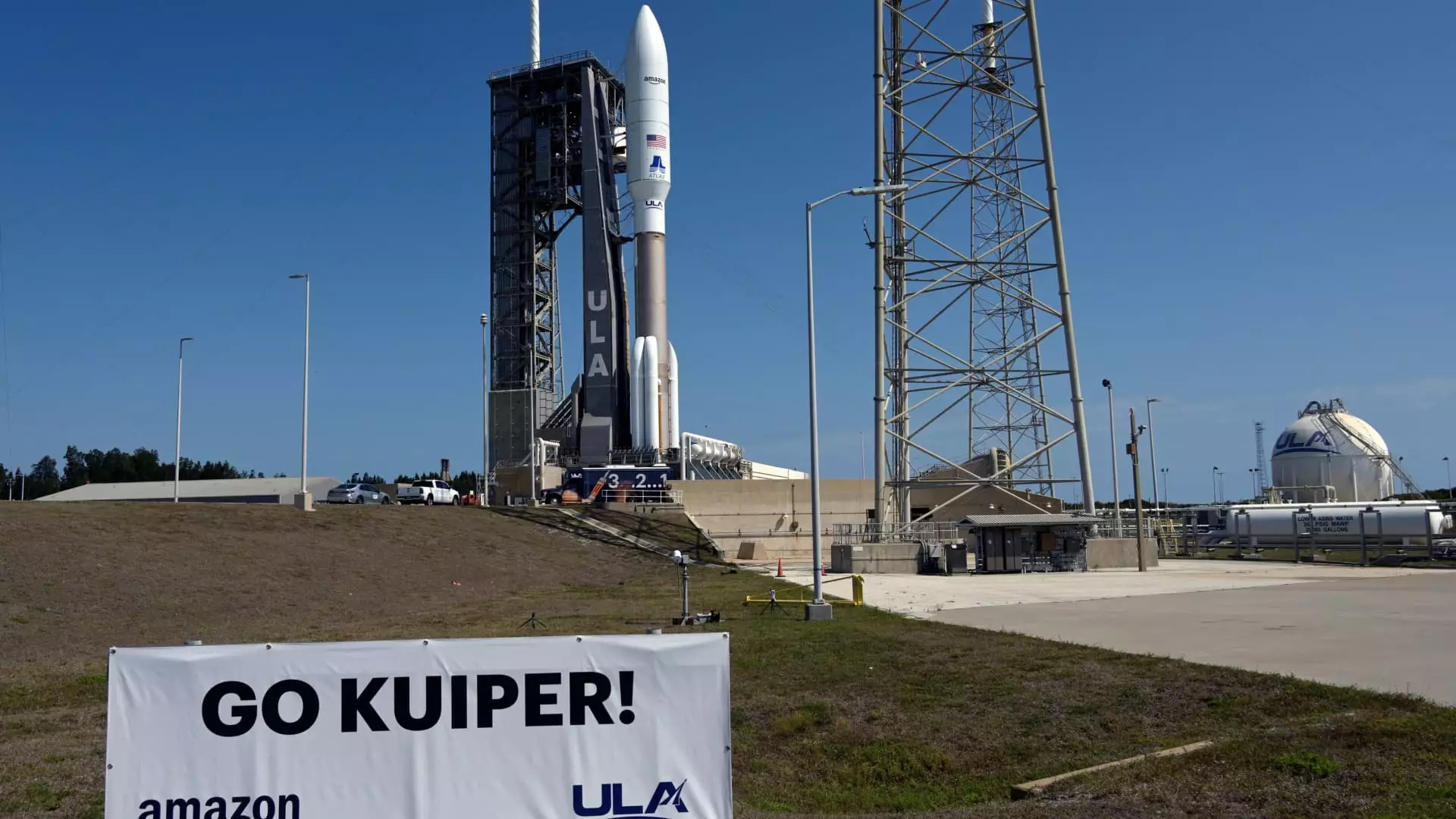In a moment that serves as a stark reminder of the unpredictability of space exploration, United Launch Alliance (ULA) announced the postponement of the second flight for Amazon’s ambitious Project Kuiper. The highly anticipated launch, originally slated for last week, encountered a significant hurdle just 30 minutes before liftoff. An “elevated purge temperature” in the Atlas V rocket’s booster engine resulted in the decision to scrub the launch. This incident echoes a sentiment within the aerospace community that while the endeavor to bring high-speed internet to the modern world is visionary, the path is fraught with technical challenges that can derail even the most well-laid plans.
The Hurdles of High-Tech Ambitions
Amazon’s aspiration to establish an extensive constellation of over 3,000 satellites to blanket the Earth in reliable internet is as bold as it is groundbreaking. However, the reality of executing such a mammoth project is a labyrinth of complications. Each satellite sent into orbit is a stepping stone toward a larger goal: to supply broadband access to the corners of the globe often overlooked by traditional infrastructure. Yet, ULA’s recent issues serve as a glaring reminder of the mechanical and engineering obstacles that can arise unexpectedly. Tory Bruno, ULA’s CEO, emphasized the importance of addressing these issues with diligence rather than rushing a launch that could have larger implications.
The Competitive Landscape
To add to the urgency, Amazon finds itself in a fierce race with established players like Elon Musk’s SpaceX and its Starlink service, which has already captured significant market share in the satellite internet space. The stakes are high—Amazon is under pressure to adhere to a Federal Communications Commission deadline mandating that at least half of its satellite constellation be operational by July 2026. The unrelenting pace of innovation and competition in the tech field means that each delay can result in lost momentum, making it paramount for Amazon to regain its footing swiftly.
A Larger Conversation on the Future of Connectivity
While ULA’s setback is a small part of the broader narrative, it raises pivotal questions about the future of satellite internet. We are at a crossroads where we must reconcile the amazing vision of a connected world with the practical realities of engineering, regulation, and execution. As we transition further into an internet-driven society, the responsibility also lies with industries to ensure service reliability and accessibility. The rush to provide internet service across vast distances must not come at the cost of thorough testing and responsible engineering practices.
The frustration around the delay highlights the intricate interplay between ambition and reality in the tech world. For enthusiasts and investors alike, the hope remains that once resolved, these challenges will not stifle innovation but rather fuel a renewed commitment to achieving Amazon’s vision for Project Kuiper. The quest for global connectivity is a daunting one, but navigating technical setbacks with transparency and perseverance will be key to the success of this revolutionary endeavor.



Leave a Reply